Berlin Journal, Part II
A wall, a gate, a game, and more
It’s good to see Stresemann Street—a street named after my old friend Gustav Stresemann. I never met him in person. He was born in 1878 and died in 1929, and for the last six years of his life, he was foreign minister of Germany. I got to know him when I wrote a history of the Nobel Peace Prize. In 1926, he shared the prize with the French prime minister, Aristide Briand.
Stresemann was a serious and gifted statesman. I could go on, but we’re doing a breezy travel journal ...
***
Intersecting with Stresemann Street is Erna Berger Street. Good to see her, and it, too. She was one of the leading coloraturas of the 20th century. (A soprano, I might spell out: one who went way up high and could give you roulades and trills and the like.)
***
Looking at Goethe here—doesn’t he cut a dashing figure, by the way?—I think of Stefan Zweig, the Vienna-born writer (1881–1942). He revered Goethe, as any German-language writer would. Once, he was in the presence of an old lady who, when a baby, had been in the presence of Goethe. Zweig was deeply moved by the experience. Even to meet someone on whom Goethe had looked.
***
I don’t know what Germans think of when they look at the Brandenburg Gate. But I can tell you what I think of: the Gipper, telling Gorbachev to tear the wall down.
***
Reagan gave his speech in the summer of 1987. The wall fell in November 1989—on the 9th. You know what’s happening in Berlin this November 9? An NFL game—’tween the Falcons and the Colts. I see their fans, wearing their gear, everywhere.
***
Walking under the linden trees—walking along that famous boulevard, Unter den Linden—you encounter Frederick the Great. In a massive monument. I don’t have a picture for you, because the light was bad.
But I think it’s wonderful that Germany would honor a composer and flutist in such a way. (I understand he did some governmental and military work in his spare time.)
***
Believe it or not, I have occasion to quote Frederick the Great to someone who has spoken disparagingly about arms manufacturers. “Diplomacy without arms,” said Frederick, “is like music without instruments.”
Damn right.
***
Behold Humboldt University—or at least its law school:
And right next door, St. Hedwig’s Cathedral:
And a few steps from that—the opera house (or one of them, in this opera-rich town):
A temple of art:
And an autumnal angle:
***
On a bridge, I see a kind of performance, having to do with climate change. I think of a phrase of Bill Buckley’s: “the street theater of the Left.”
***
Um ...
***
In the break room (so to speak) at the World Liberty Congress, there is a rhubarb drink—rhubarb lemonade. A delegate from Africa asks me, “What is rhubarb?” You know, I have a hard time explaining (though I’ve had my share of strawberry-rhubarb pie).
***
Hannah Arendt Street and Cora Berliner Street intersect with each other. These were two intellectuals, one born in 1890 (Berliner), the other born in 1906. Arendt survived the Holocaust, dying in New York at 69. Berliner was murdered in the camps.
***
People here enjoy going to Wannsee, that pleasant lake. (Actually, there are two lakes called “Wannsee,” a bigger one and a smaller one.) It’s not a lake’s fault that genocide was planned nearby. But the name “Wannsee” will never be to me a simple natural designation—as I know you can understand.
***
The Holocaust memorial in Berlin is called, formally, “Memorial to the Murdered Jews of Europe.” It has a stark power, I find.
***
Where do we go from here? It’s almost indecent to continue. But you have to go somewhere.
How about the zoo?
***
What the …
(I once overheard a Sunday-school class. A boy said, “What the ...?” A girl said, “Ooh, Tristan said a bad word!” He said, “No, I didn’t.” She said, “Yes, you did, you said ‘What the ...?’!”)
***
I wonder whether anyone can sing in there ...
(Lilian von Trapp, I discover later, is a prominent jewelry designer.)
***
I want to tip a couple of young women behind the counter of a café—but I don’t have the right money. And they don’t have the right change. And the credit-card thing is not set up for tips. And ...
Anyway, I wind up saying, “Hey, can I give you a couple of dollars?” They keep saying, “No, no, you don’t have to tip,” but I say, “I’m an American, and I must tip.”
One of the young women says, “To be honest, I’ve never seen a dollar before, in real life. Just on TV and stuff. I could wave my dollar to my friends.”
That’s the spirit. The two women examine their dollars: George Washington, the Eye of Providence, the mottos: “In God We Trust” and “E pluribus unum.”
A dollar is kind of interesting, to tell you the truth.
***
What would Checkpoint Charlie be without Kentucky Fried Chicken? And FedEx?
In a more serious vein: Thinking of the Berlin Wall, I think of the Koreas. They have an equivalent of Checkpoint Charlie, I think. Will there ever come a day when tourists like me just wander around? When the totalitarian part of the Korean Peninsula will be merely a distant nightmare?
***
By this banner on the façade of the Wall Museum, I am moved:
***
Here is an art installation (if I’ve used the right phrase) that is part of Berlin Freedom Week:
I will quote from an article about this installation:
The illuminated text sculpture ‘I Don’t Have Another Land’ (2022) by renowned Glasgow based artist Nathan Coley is being shown in Germany for the first time: at the ruins of Anhalter Bahnhof. The work takes its origin from graffiti that the artist discovered in Jerusalem in the mid-2000s. The striking phrase is intentionally ambiguous: it might refer to the historical significance of the site, but it can also be read as a comment on contemporary issues of belonging and identity.
***
When I was quite young, I learned Langsam as a musical marking: Slow. I like seeing it “out in the wild.” In a park, on the pavement, city authorities are telling bicycle-riders to slow down: Langsam.
Should I end my Berlin Journal on so minor a note? Why not? You are nice to join me. Thank you. See you soon.




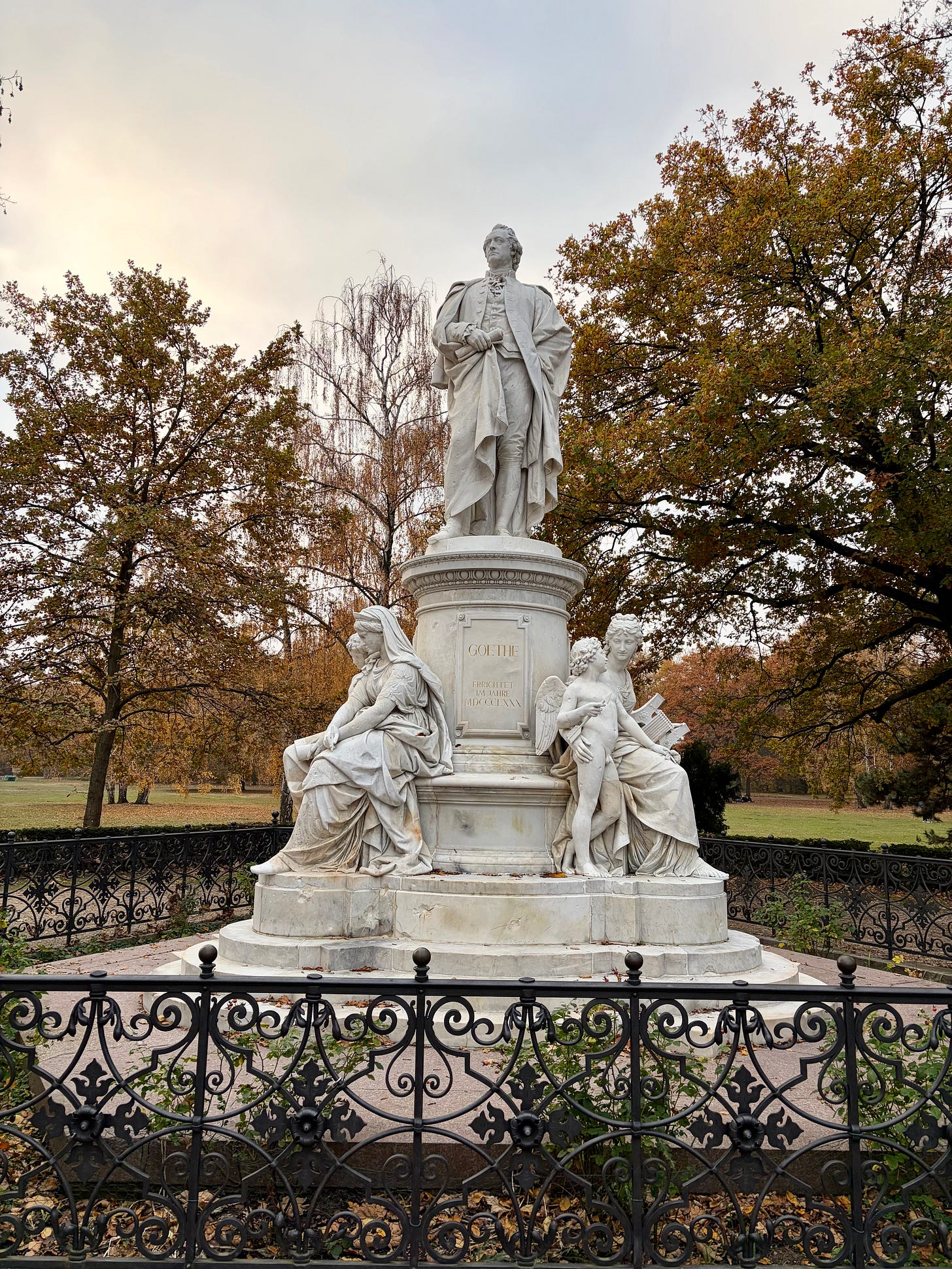
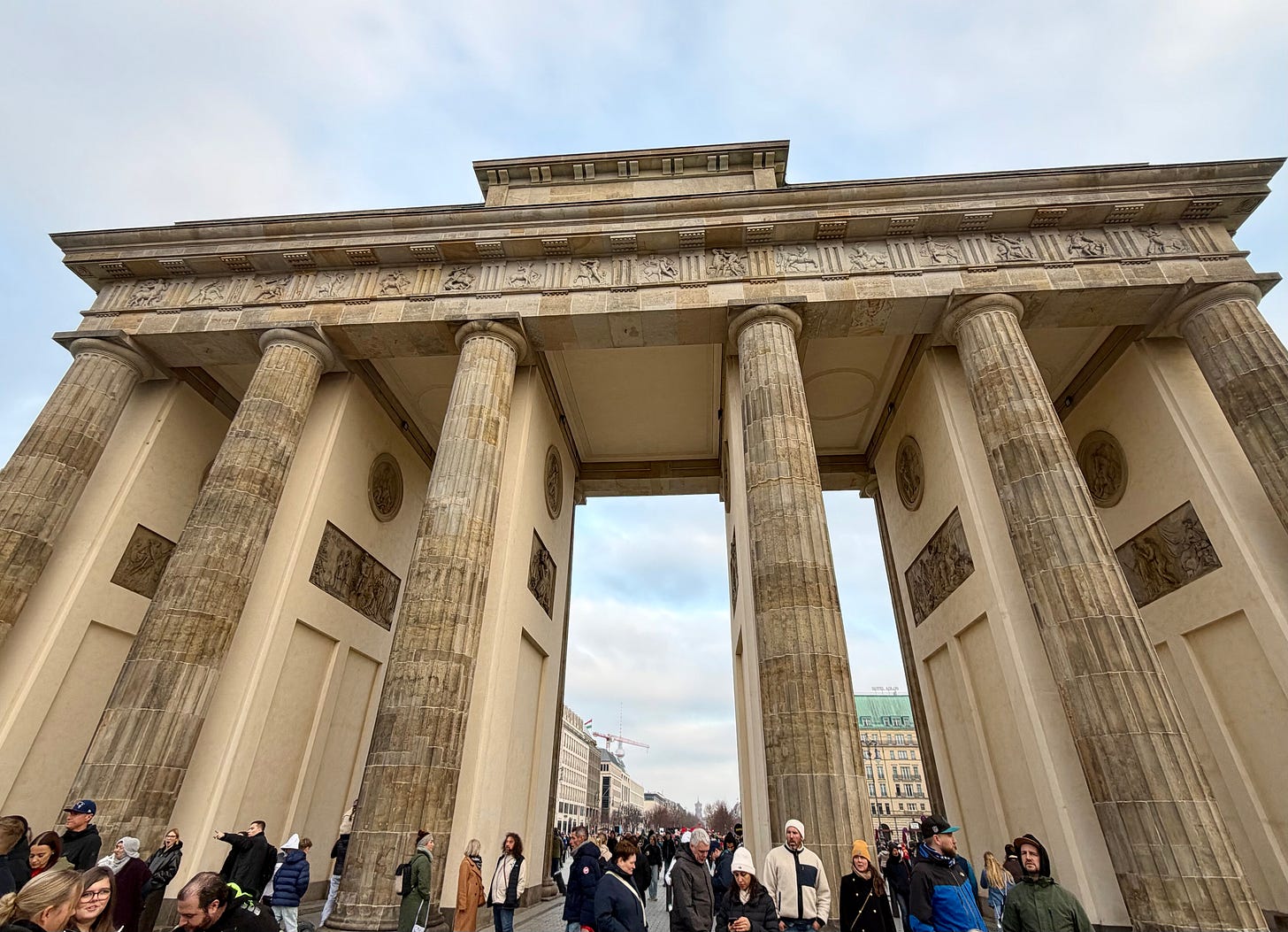
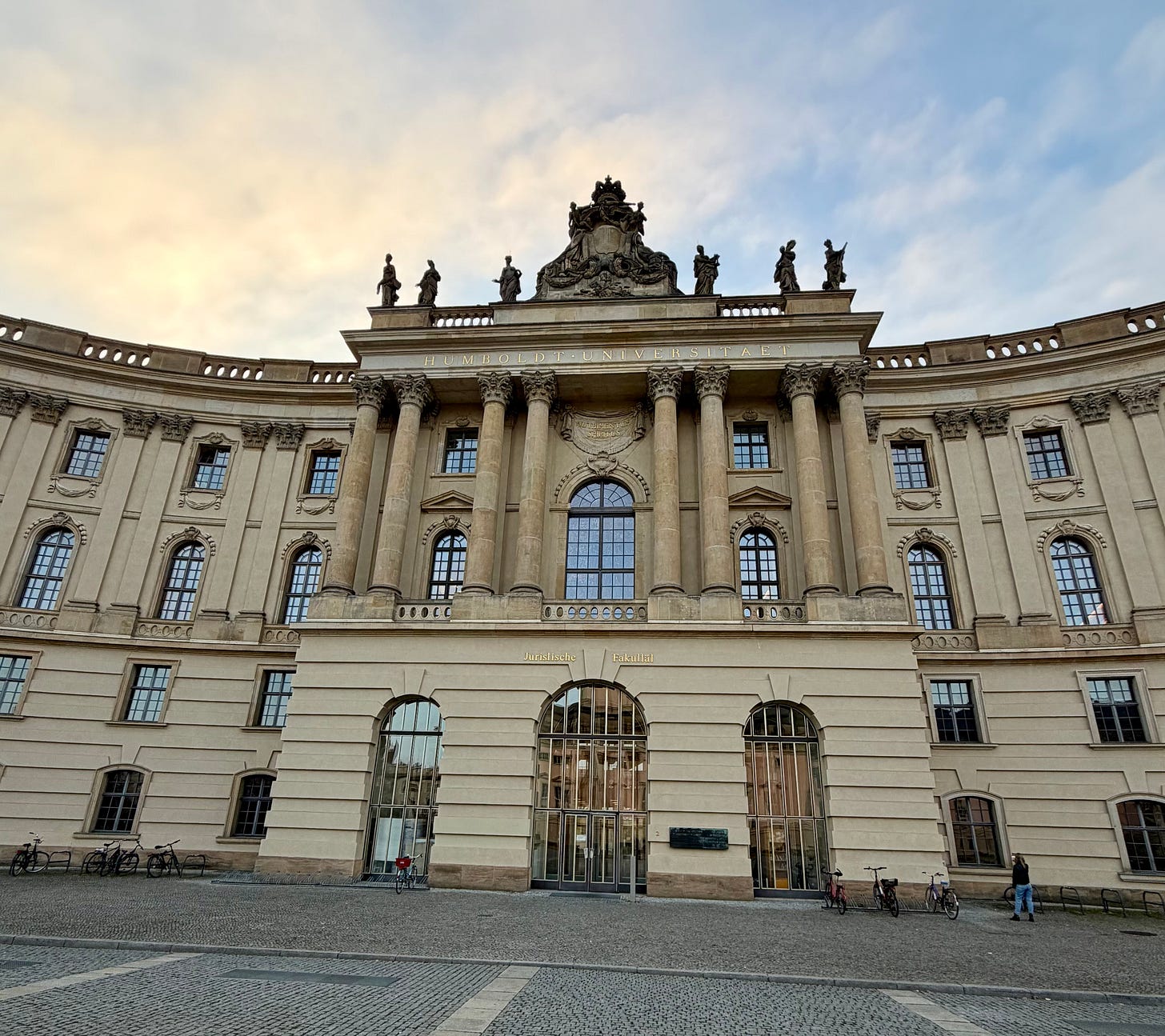
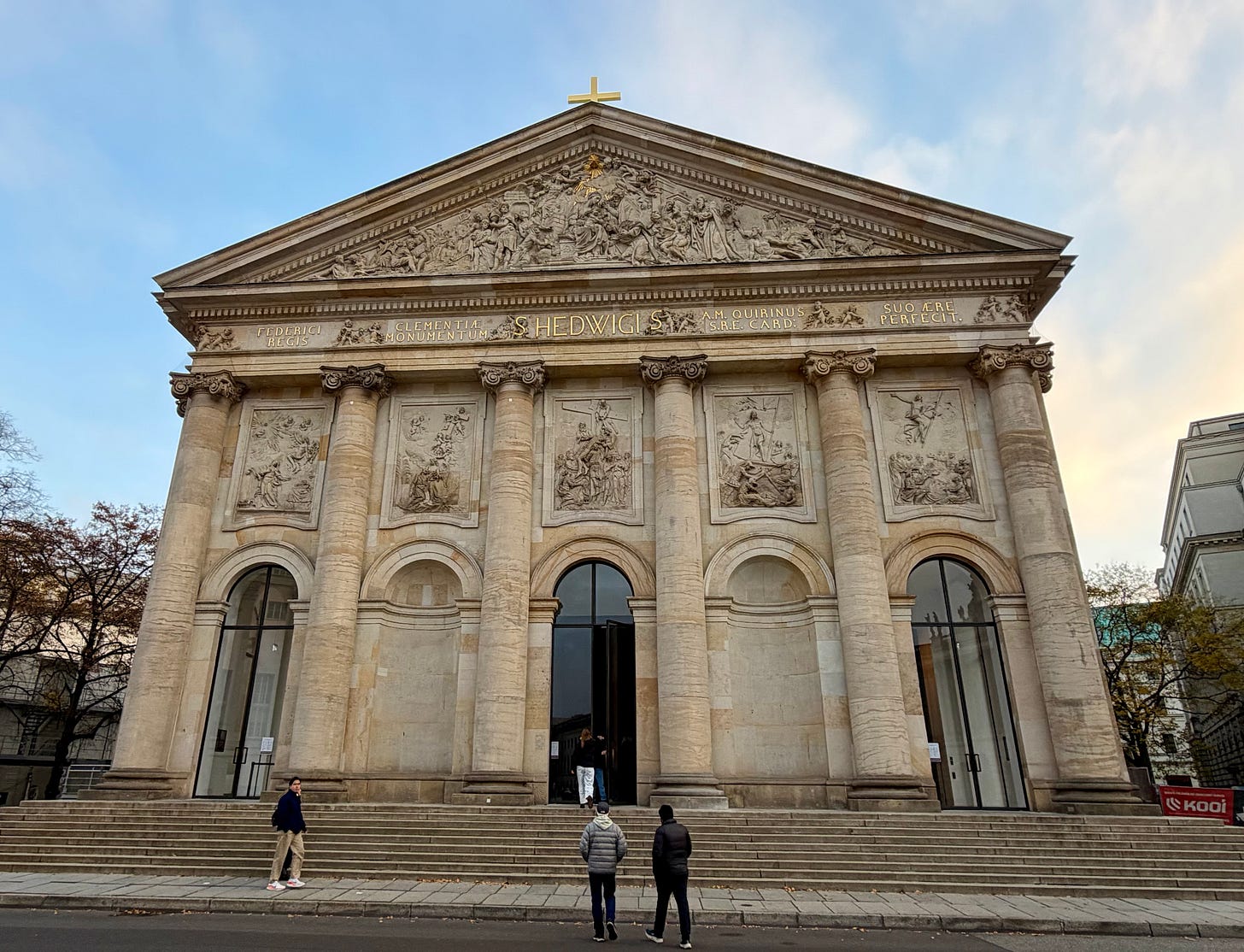
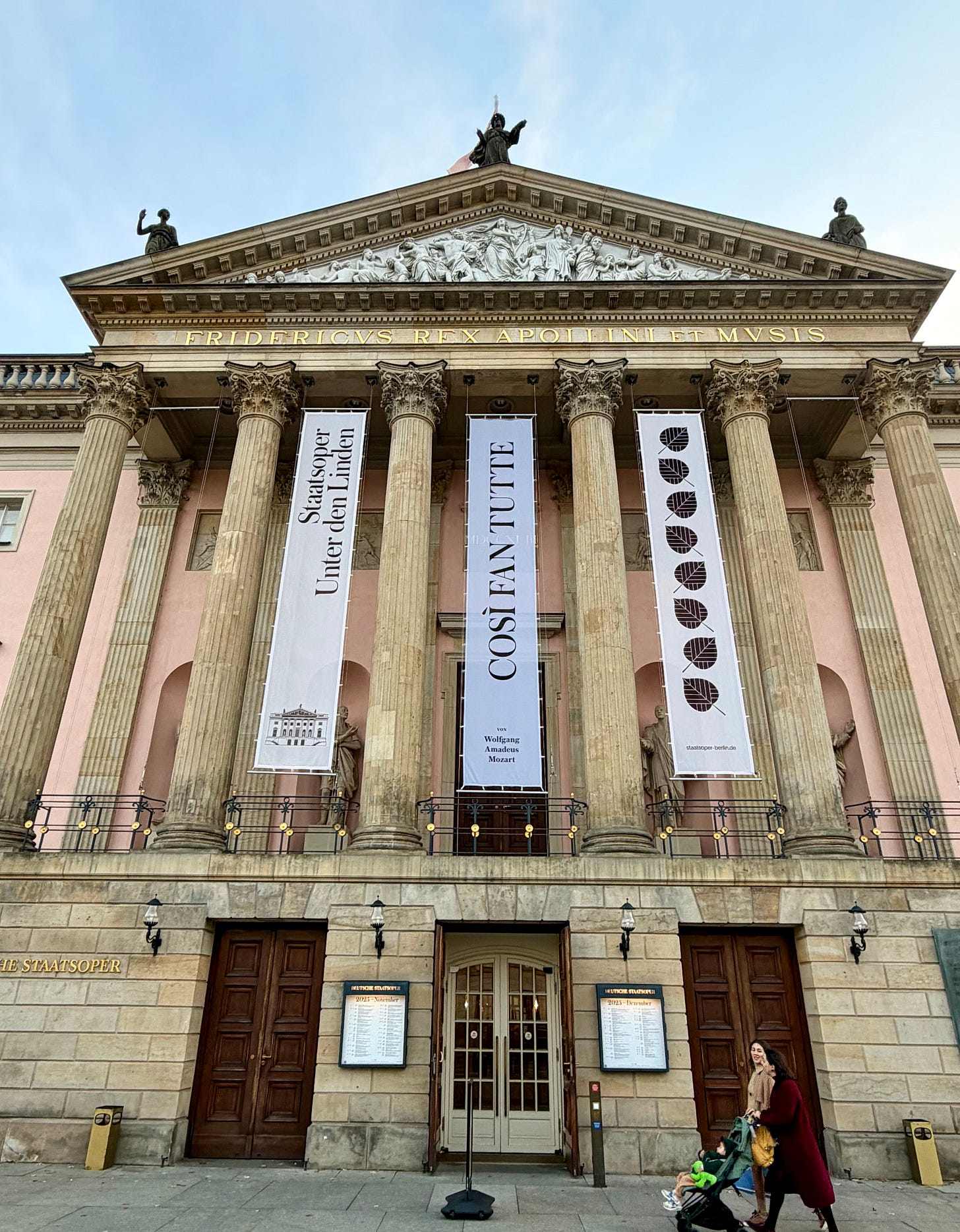
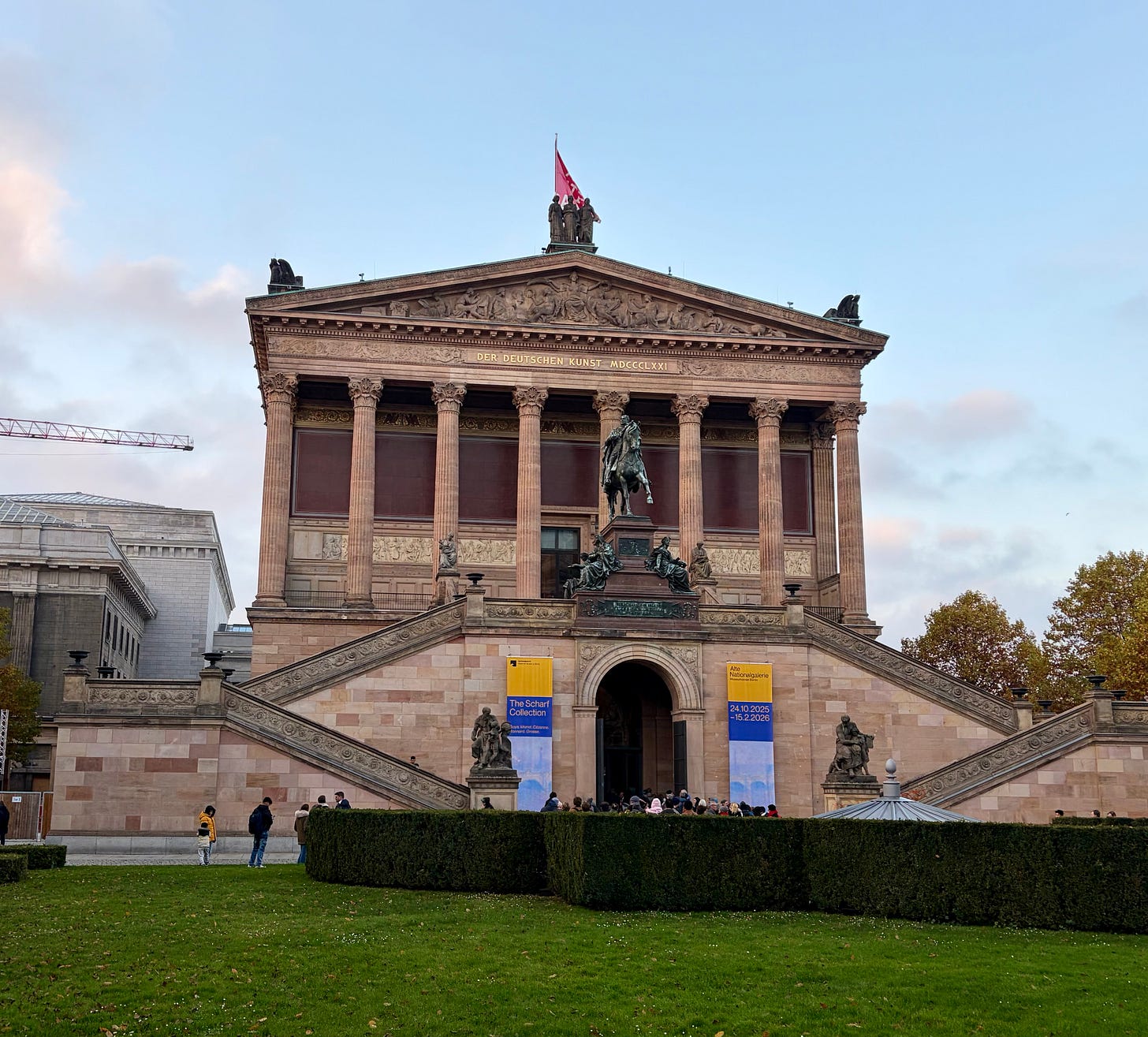
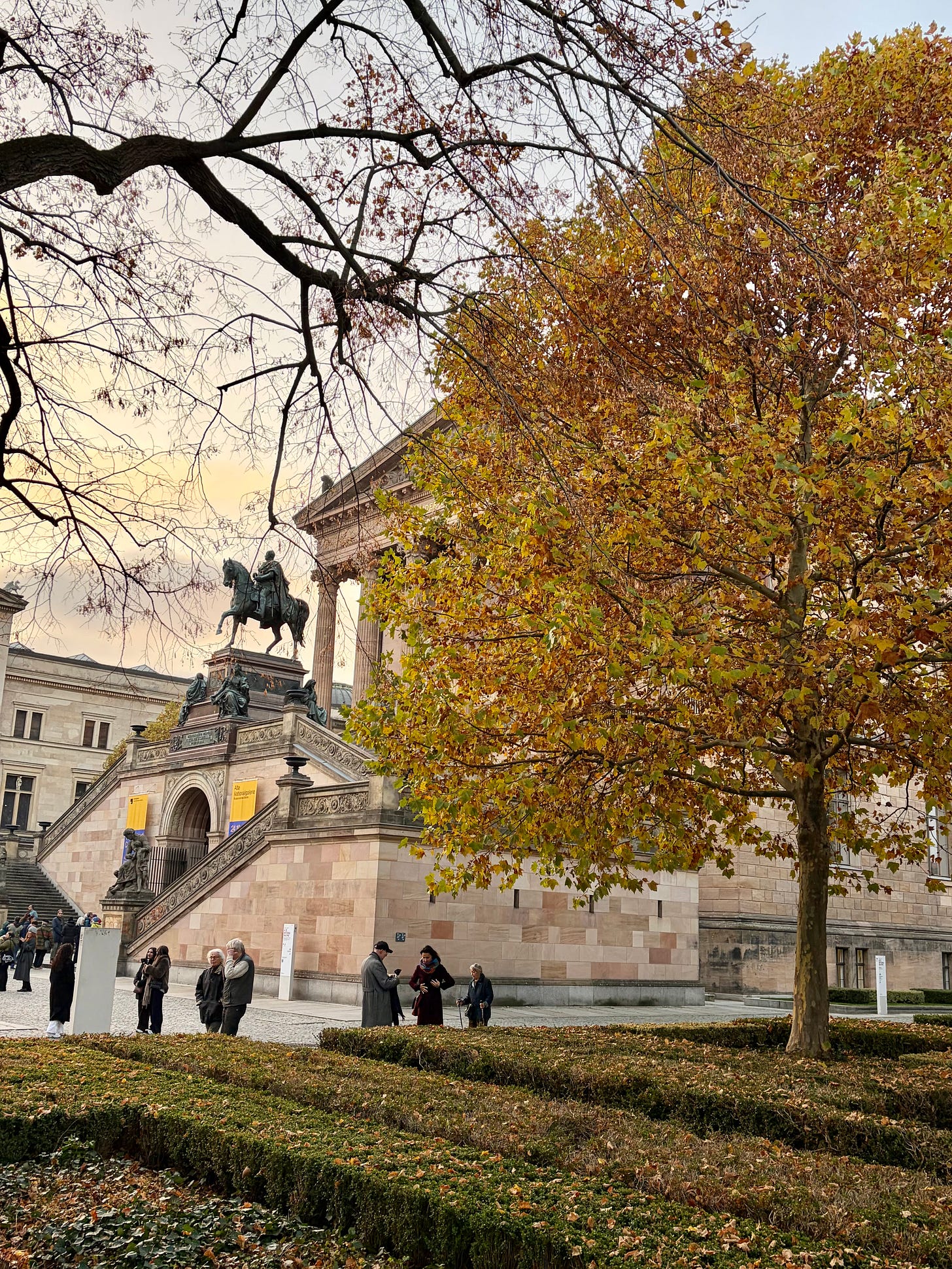
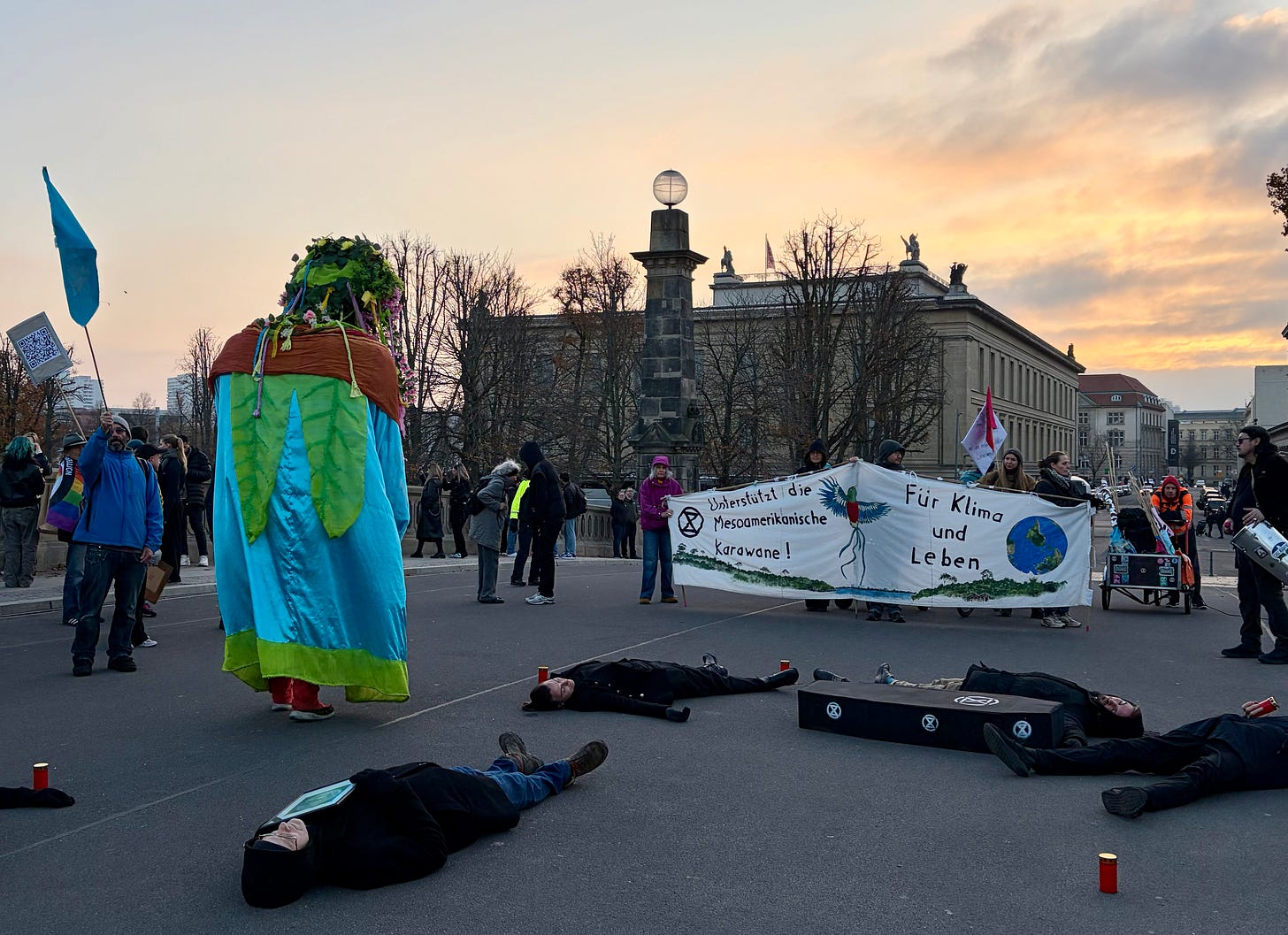
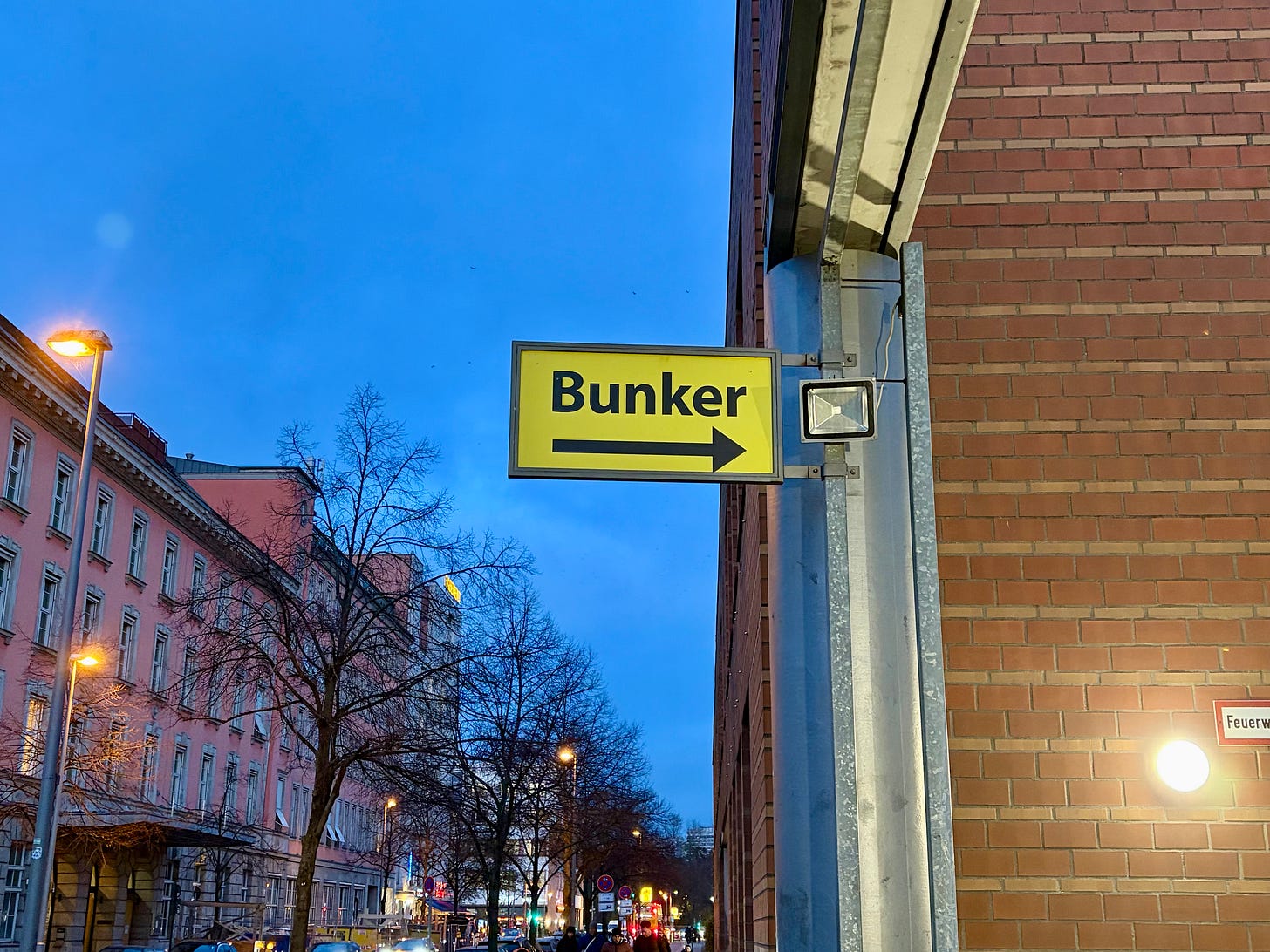
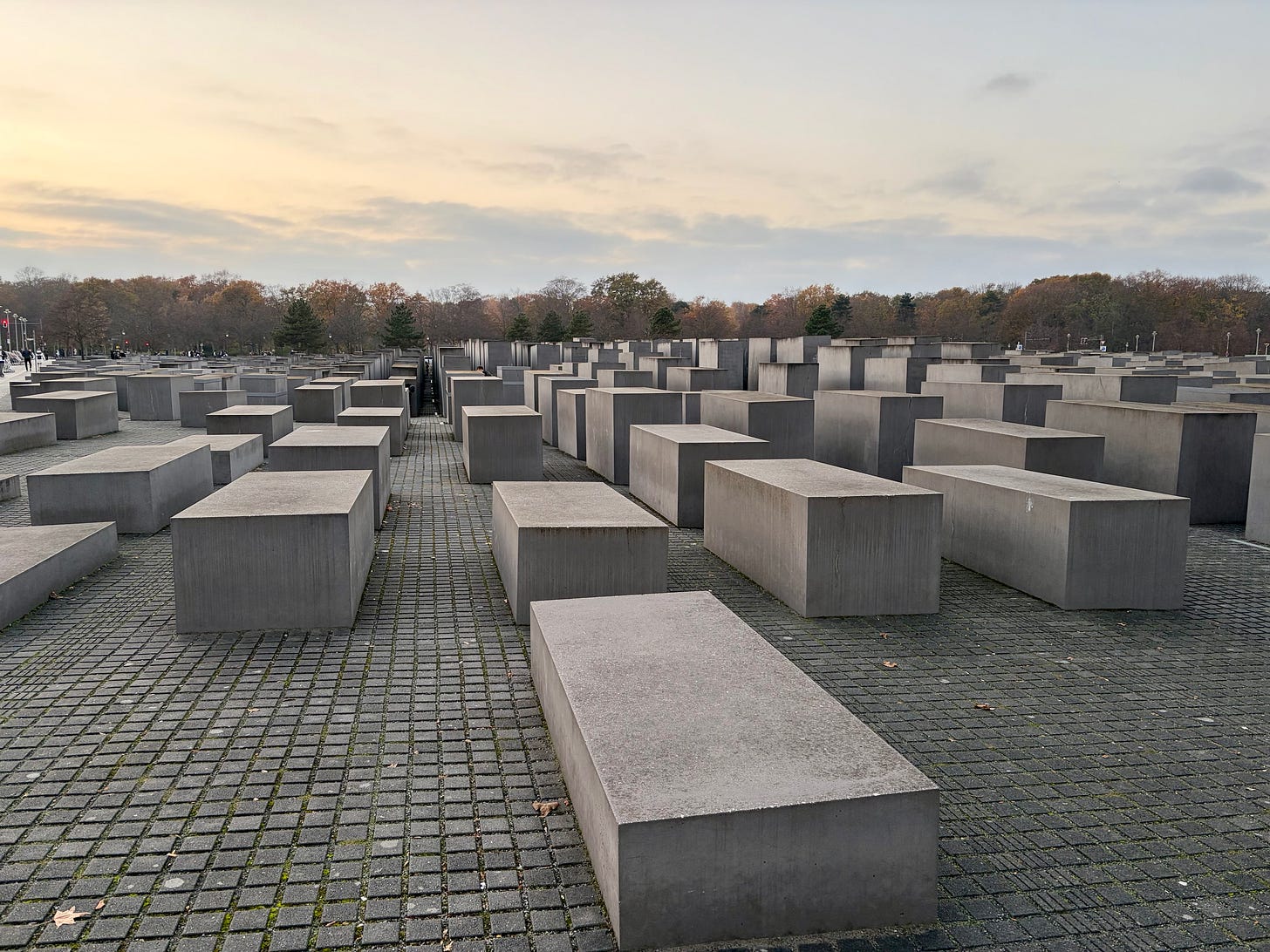
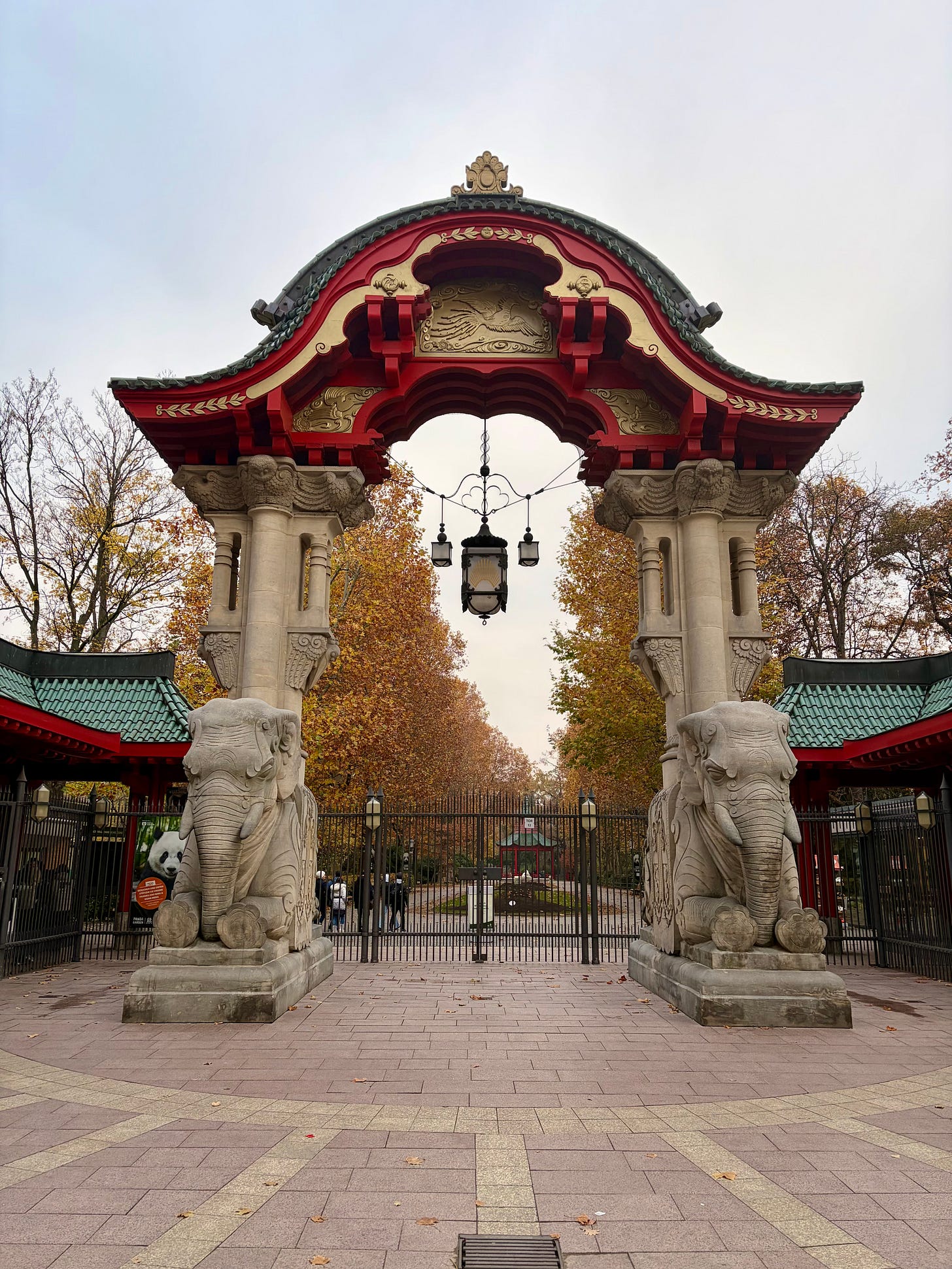
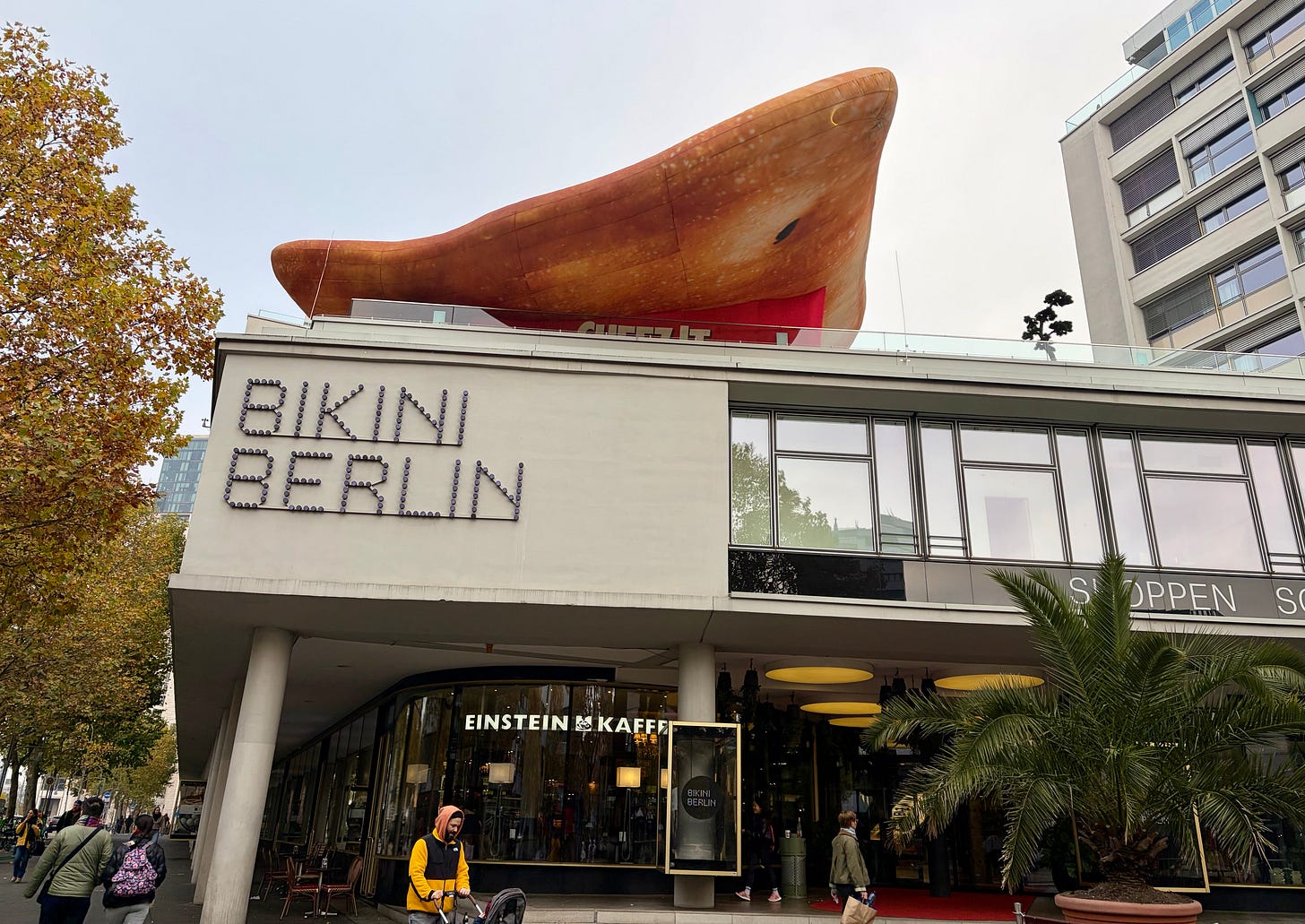
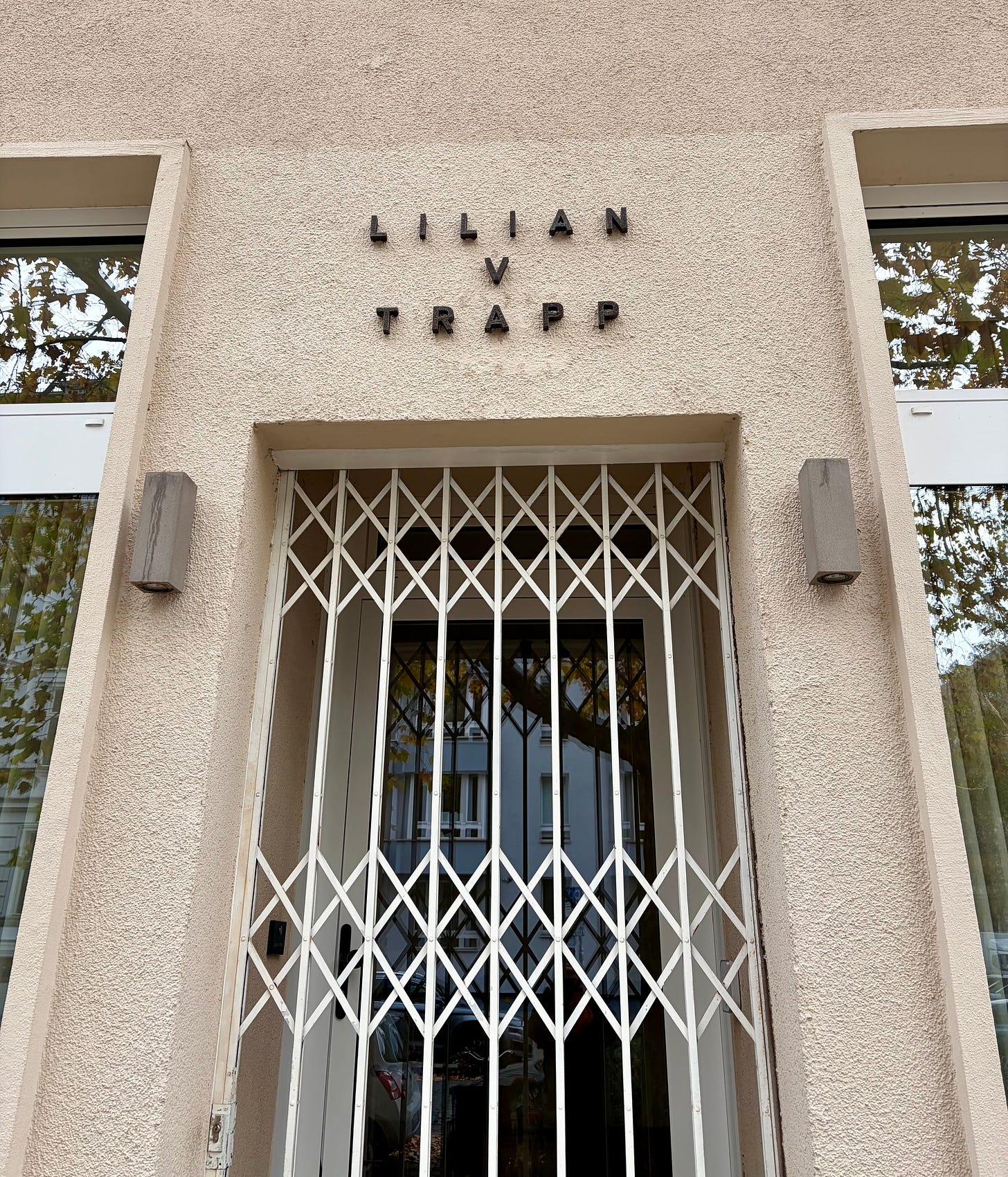
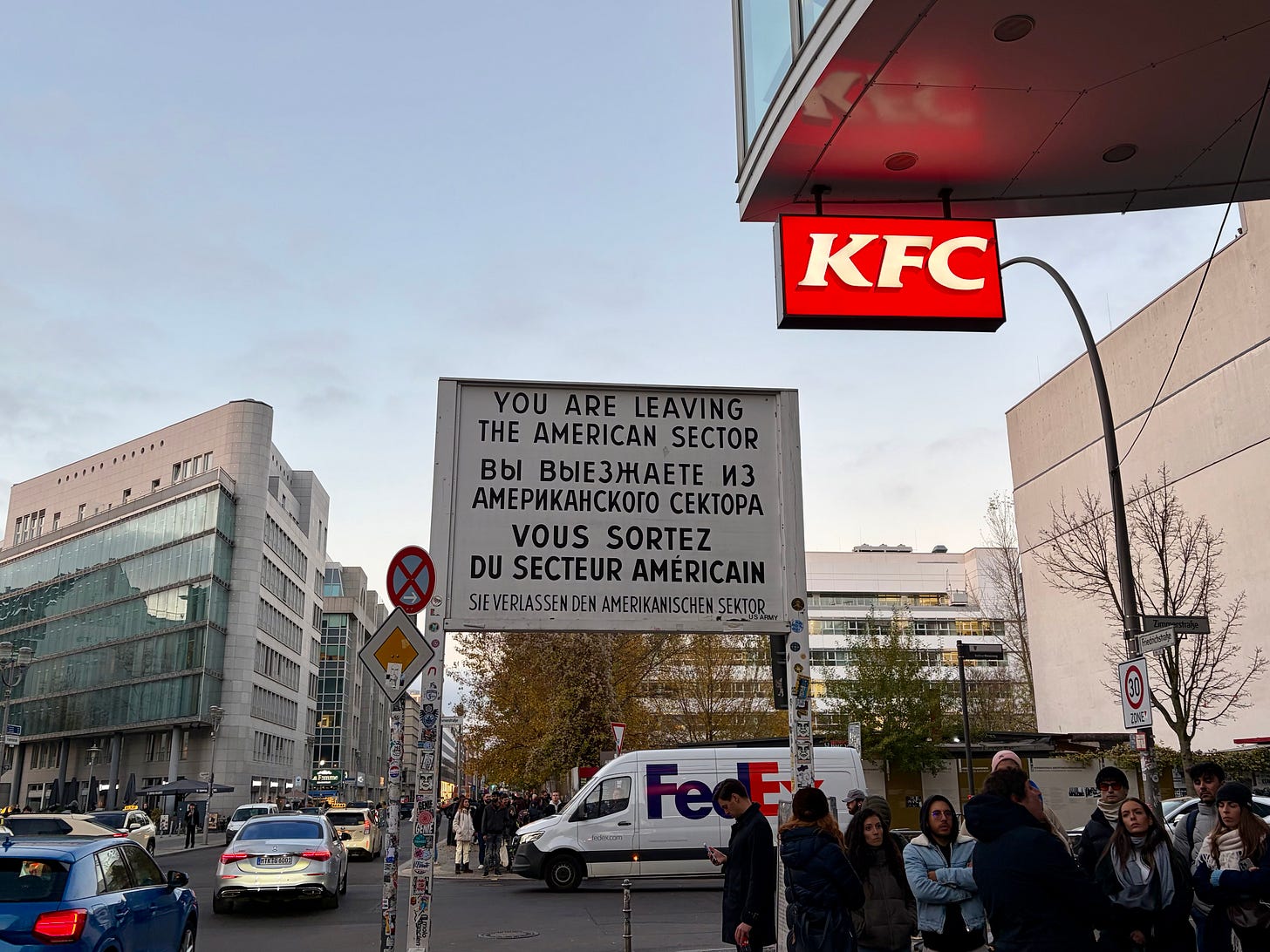
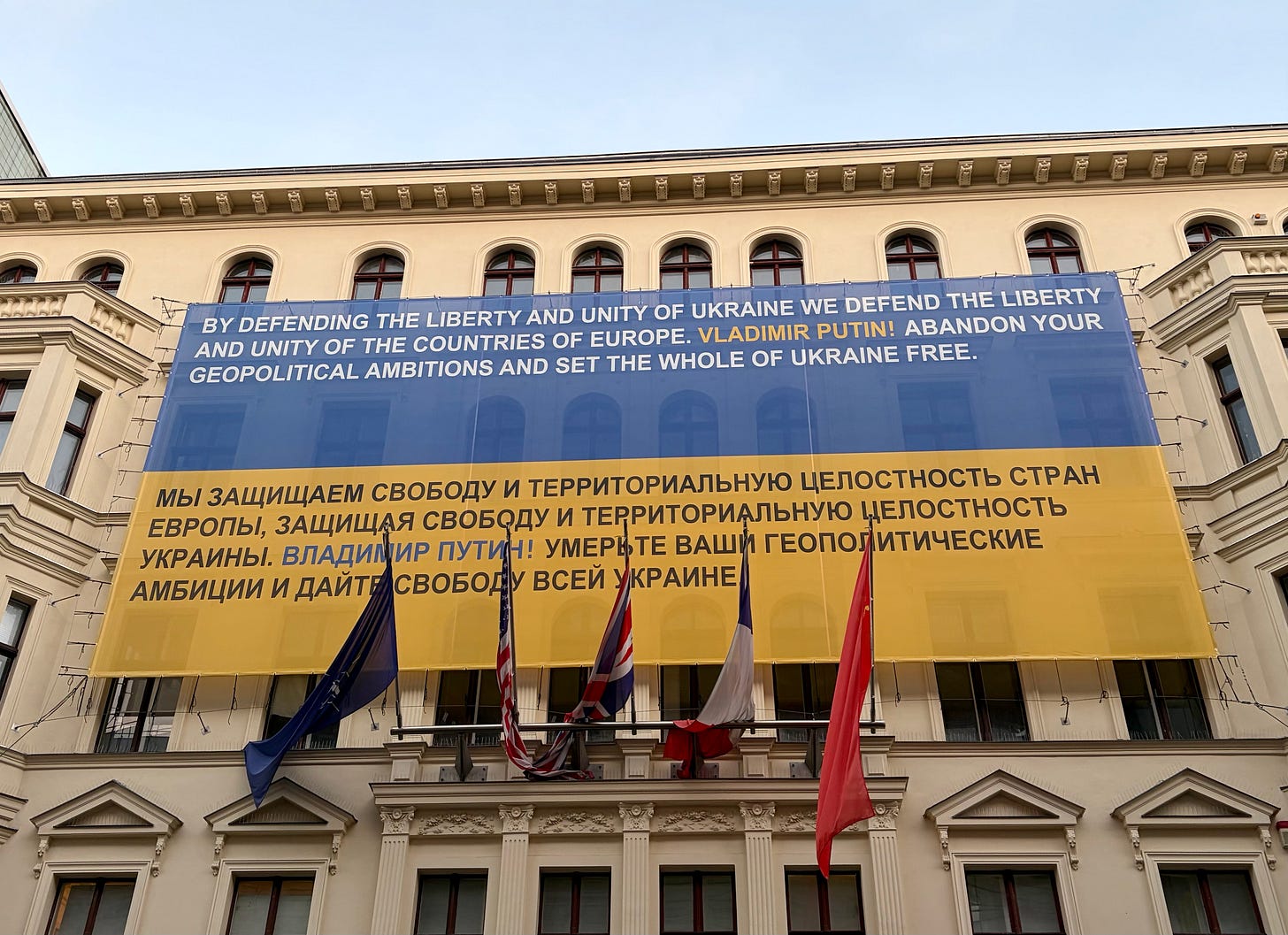
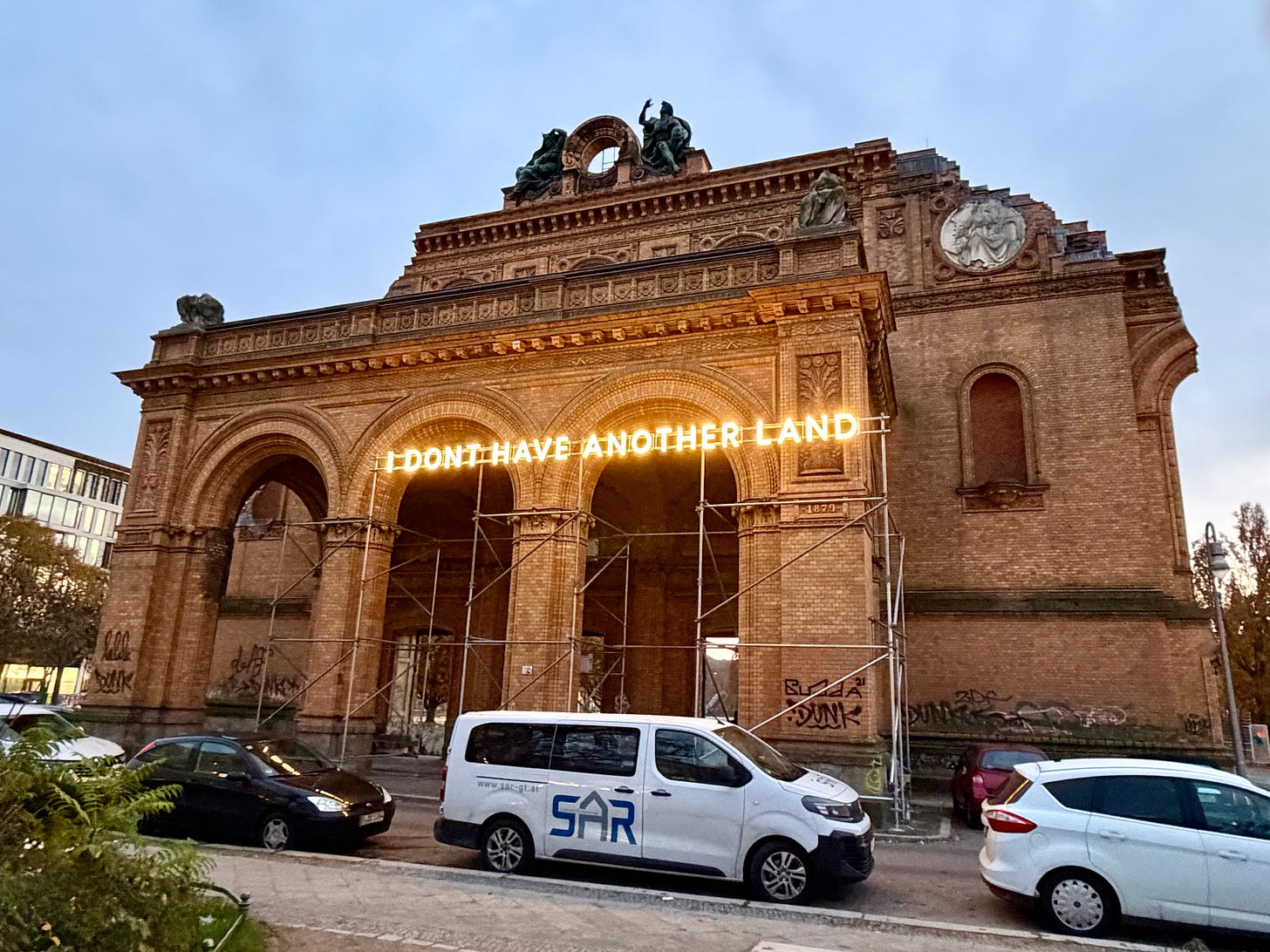
"I don’t know what Germans think of when they look at the Brandenburg Gate."
Neither do I, but I think of P.J. O'Rourke's article about the fall of the Berlin Wall and about my brother persuading his Air Force friends to go with him to East Berlin and see Guns N Roses.
Thank you for taking us along with you in Berlin.